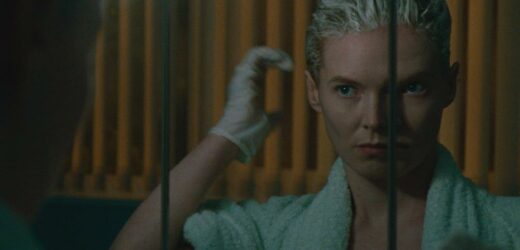Inward investment into film and high-end television (HETV) in the U.K. during 2022 reached a record height of £6.27 billion ($7.72 billion), statistics from the BFI reveal.
This is the highest ever reported figure and is £1.83 billion higher than for the pre-pandemic year 2019.
Some 69% of the £6.27 billion spend was contributed by HETV production with £4.30 billion, with feature film production contributing £1.97 billion.
However, spend on independent U.K. filmmaking showed a downturn with £174 million, a 31% decrease on 2021. On the other hand, coproductions with independent producers saw a 3% increase in spend with £59 million.
Of the total £4.29 billion HETV production spend: inward investment shows contributed £3.62 billion (84% of total HETV spend and a 3% decrease on 2022); domestic U.K. shows accounted for £632.7 million (15% of total HETV spend and a 4% decrease on 2021) ; and coproduction spend was £36.5 million (less than 1% of total spend but a near three-fold increase on 2022).
Of the total £1.97 billion spend on film production: inward investment films contributed £1.74 billion (88% of total film spend and a 31% increase on 2021); domestic U.K. films accounted for £173.6 million (8% of total film spend and a 31% decrease on 2021); and coproductions accounted for £59.1 million (3% of total film spend and a 3.5% increase on 2022).
The total number of films going into production in the U.K. in 2022 was 220, 11 more than 2021. Of these, 100 are domestic U.K. features, including “The Great Escaper,” “The Critic” “Blue Jean,” “Accused” and “Twiggy.”
U.S. studio-backed films contributed £1.36 billion spend on production, a 31% increase on 2021 spend, including “Mission: Impossible – Dead Reckoning Part Two,” “Fast X” and “Magic Mike’s Last Dance.”
The figures, from the BFI’s Research and Statistics Unit, also show the increasing investment made by streamers in single long-form productions (i.e. not episodic or series). In 2022, there were 22 single domestic U.K. and inward investment productions which contributed £938.8 million to the HETV spend of £4.30 billion. The spend represents a 23% increase on 2021’s £765 million spend on single productions. These productions include Steve McQueen’s “Blitz,” Ridley Scott’s “Napoleon” and Emerald Fennell’s “Saltburn.”
2022 total box office for films released in the U.K. and the Republic of Ireland reached £945 million, 57% more than for 2021 but 26% behind 2019 levels, while admissions were 117.3 million, an increase of 59% on 2021 but lagging behind pre-pandemic 2019 by 23% with 176 million admissions.
The highest grossing release of 2022 was “Top Gun: Maverick” with £83.7 million, representing 9% of the year’s total box office, followed by “Avatar: The Way Of Water,” with £70.9 million (currently still on release). The top 20 films also feature six U.K./U.S. films made in the U.K.: “Doctor Strange In The Multiverse Of Madness,” “The Batman,” “Jurassic World: Dominion,” “Roald Dahl’s Matilda the Musical,” “Fantastic Beasts: The Secrets Of Dumbledore” and “Downton Abbey: A New Era.”
The top grossing U.K. independent film was “Belfast” followed by “The Banshees of Inisherin,” “Operation Mincemeat” and “The Duke.” The total box office for the 2022 top 20 U.K. independent films was £69.2 million, representing 92% of the total box office for U.K. independent film over the year.
Ben Roberts, BFI chief executive said: “Our world-class talent, craft and production services, and vital film and TV tax reliefs, have enabled the UK to be a major player in a highly competitive global industry. Further investment in expanding studio space U.K.-wide to meet production demand will continue to build on this economic success and create further jobs.”
“But while independent U.K. films such as “Aftersun” and “The Banshees Of Inisherin” are enjoying awards and audience success worldwide and are clearly essential to the creativity of our industry and for U.K. culture, the continuing downturn in production spend on U.K. indie film means we need to stand behind the recommendations of the Economic Review of U.K. Independent Film to ensure it survives and thrives,” Roberts added.
Adrian Wootton OBE, chief executive of the British Film Commission, said: “It’s a real testament to the strength of our regional as well as metropolitan offer that so many major film and high-end TV productions choose to base themselves through the length and breadth of the U.K. With the right levels of ongoing investment in skills, support and infrastructure, the U.K. is well-positioned to attract major international film and TV productions for many years to come.”
Read More About:
Source: Read Full Article


